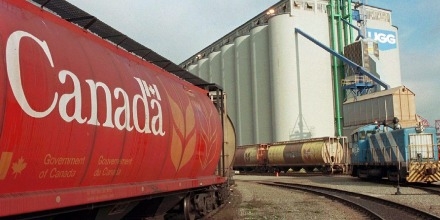The Wheat Growers want Ottawa to stop playing games with Bill C-234 and pass it.
The bill that would exempt natural gas and propane used for grain drying and heating & cooling barns from the carbon tax is in 3rd reading in the Senate, but it’s faced delays and bickering from politicians on both sides of the issue.
Conservatives have accused the Trudeau government of trying to influence Senators to vote against Bill 234, while Liberals such as Environment Minister Stephen Guilbeault have pushed back to say only conversations about the bill were had, and nothing more. There are at least a handful of Senators in the upper chamber, meanwhile, who believe there is no need for an exemption, while others such as David Wells who say it is necessary.
After the feds’ announcement of an exemption for heating oil in Atlantic Canada, they’ve made it clear there will be no more carve-outs. Several provincial leaders have since called for an exemption for all sources of home heating.
Chair of the Wheat Growers Daryl Fransoo says it’s unfortunate how it once had good momentum but now is stuck.
“Of course the bill got all party support in Parliament, even some Liberals voted in favour of it, but now that’s in the Senate they’ve been doing everything to kind of kick it down the proverbial line unfortunately.” he said.
Fransoo said while the federal government did provide an exemption for on-farm diesel, they “only went part of the way” with exemptions for farmers, so costs incurred from the carbon tax still get passed down.
“What they don’t account for is some of the indirect costs. Rail transportation, that fuel is taxed with the carbon tax and that gets downloaded onto farmers. Simple things like keeping the lights on at the equipment dealership there’s a carbon tax on that, that gets passed down to the farmers.” he said, adding costs incurred on farmers gets passed down to the consumers to a certain extent.
He also referenced a September 15th report from the Parliamentary Budget Officer that showed Bill 234, if passed, would save farmers around $979-million by 2030-31.
Lastly, Fransoo said farmers are good stewards of the environment.
“We employ the best management practices, we employ the best technology we can and we don’t need a government to tell us to do that; we do it because it’s the right thing to do, so to tax us doesn’t allow us the financial means to implement some of that stuff. If you’re taking dollars away from us, we can’t reinvest in our farm to be even better stewards. That’s why I call it a ‘perverse tax’ on farmers.”
Next time the bill may be debated in the Senate is next week.



